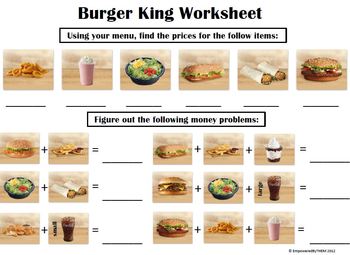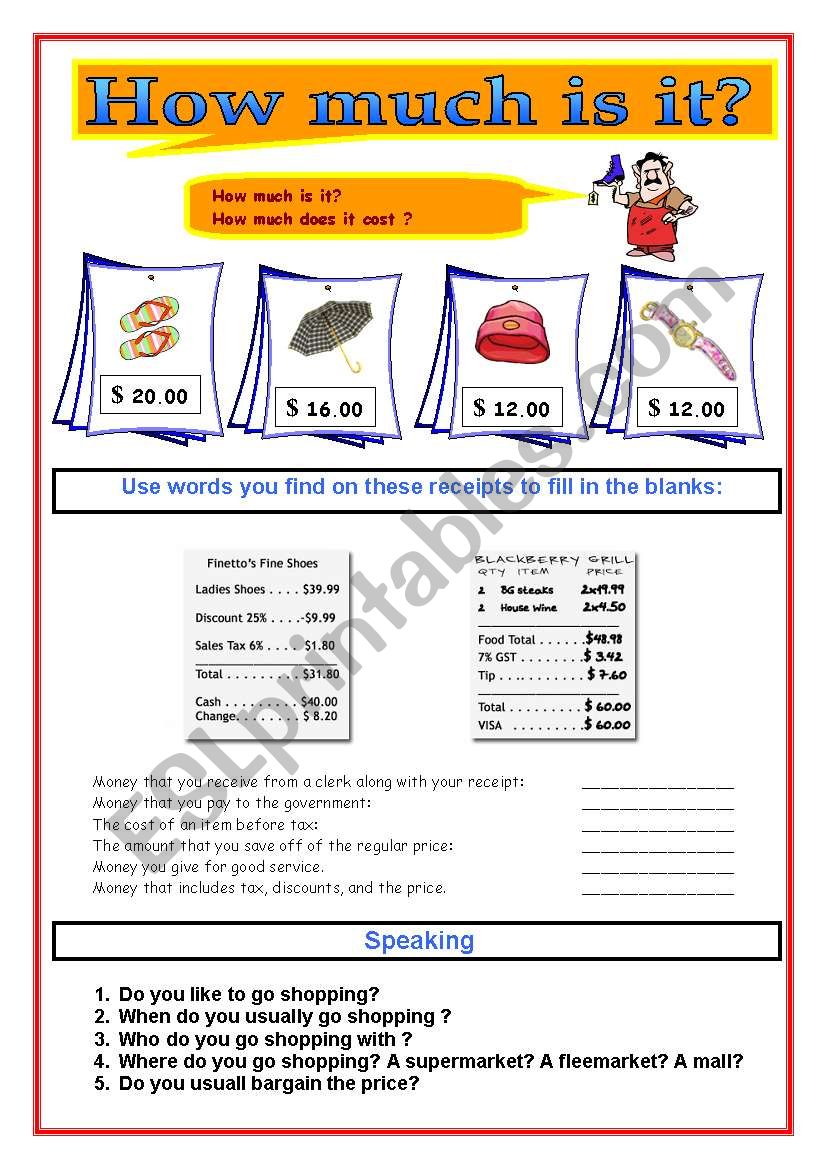
Use every opportunity to impart this knowledge.
#SHORT MENU FOR MONEY SKILLS HOW TO#
With older children, introduce the concept of “needs versus wants” together with learning how to spend only what they save. Know the difference between needs and wants Your child will also learn to look beyond his or her own needs and care for others.Ħ. Making choices, and bearing the consequences is part of their journey to making smarter financial decisions. This exercise will help your child develop good money habits.Īnd since your child has saved some money, an equally important lesson is to let them make decisions on what to do with the kitty.
#SHORT MENU FOR MONEY SKILLS UPDATE#
Update the passbook and tell your child about interest, deposits, and loans Take the opportunity to open a bank account for your child.

Investing - for money to grow on its own.Work on a goal together and help your child save towards it Have your child distribute his or her allowance across these money boxes: You could give your child four money boxes to show the importance of saving for different goals. Besides serving as a reward for your child’s efforts, it can also reinforce the saving habit and spur him or her on to save for future financial goals.ĥ. If your child saves 50 cents a day, you can encourage him or her by also contributing 50 cents to his or her savings.

A chart of which days your child saved, for instance, serves as a reminder of his or her discipline, and gives a sense of achievement. Motivation can also come from letting your child see his or her progress in saving. Put up a picture of the item your child is saving for, and he or she will have motivation to continue putting money into the "bank". Visual representations are important for children. Here are a few tips to encourage your child to save:Ī clear jar ensures your child won’t think that the money is "gone” since he or she cannot see it. If your child can actually see his or her savings increasing, chances are, they will feel more inclined to keep up the habit. Encouraging children to save for a few months to buy their favourite toy can teach them about patience and delayed gratification. If your child is older, talk about saving goals and how long to save for an item. At this age, teach your child to put coins and notes in a money box (or any container for saving money).Īlthough he may not grasp the concept of savings, this will teach him to identify money and the difference between denominations. The sort of money skills your child is ready for depends on their age, and developmental milestones.Īt 2 years old, your child can learn how to count and compare. If not, the child may feel that saving is a hopeless, endless endeavour. So if your child wants to save money to buy a toy, it should be attainable within a short time. The younger your child is, the shorter his or her attention span will be. How much should they aim to save? What should they save for? These are questions to bear in mind when you think of ways to show them the benefits of saving.

Start early! Some research show that money habits are set by the age of seven with the biggest influence being parents' behaviour.īesides being good role models, how you pass on money skills should be tailored to your child's age, and not just made simpler.



 0 kommentar(er)
0 kommentar(er)
